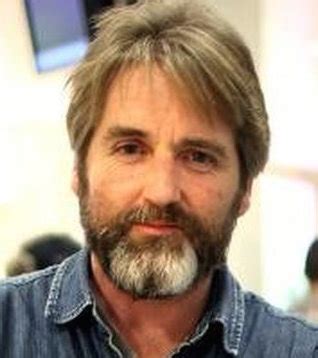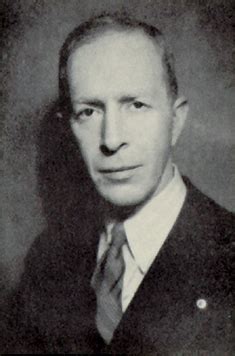A Quote by Anthony Loyd
On one level my sense of despair had been dispelled by therapy, yet on another it had not been replaced by either the desire for a future or the concept of one. I felt more aware of who I was, but that in itself-dominated as it was by sensations of fragmentation and isolation-filled me with no great hope, and in many ways only fuelled an appetite for destruction.
Related Quotes
She felt a stealing sense of fatigue as she walked; the sparkle had died out of her, and the taste of life was stale on her lips. She hardly knew what she had been seeking, or why the failure to find it had so blotted the light from her sky: she was only aware of a vague sense of failure, of an inner isolation deeper than the loneliness about her.
And they did have fun, though it was of different kind now. All that yearning and passion had been replaced by a steady pulse of pleasure and satisfaction and occasional irritation, and this seemed to be a happy exchange; if there had been moments in her life when she had been more elated, there had never been a time when things had been more constant.
I was headed for the fantastic lights. No doubt about it. Could it be that I was being deceived? Not likely. I don't think I had enough imagination to be deceived; had no false hope, either. I'd come from a long ways off and had started from a long ways down. But now destiny was about to manifest itself. I felt like it was looking right at me and nobody else.
If cathedrals had been universities If dungeons of the Inquisition had been laboratories If Christians had believed in character instead of creed If they had taken from the bible only that which is GOOD and thrown away the wicked and absurd If temple domes had been observatories If priests had been philosophers If missionaries had taught useful arts instead of bible lore If astrology had been astronomy If the black arts had been chemistry If superstition had been science If religion had been humanity The world then would be a heaven filled with love, and liberty and joy
Have you noticed that only in time of illness or disaster or death are people real? I remember at the time of the wreck-- people were so kind and helpful and solid. Everyone pretended that our lives until that moment had been every bit as real as the moment itself and that the future must be real too, when the truth was that our reality had been purchased only by Lyell's death. In another hour or so we had all faded out again and gone our dim ways.
I had always been aware that the Universe is sad; everything in it, animate or inanimate, the wild creatures, the stones, the stars, was enveloped in the great sadness, pervaded by it. Existence had no use. It was without end or reason. The most beautfiul things in it, a flower or a song, as well as the most compelling, a desire or a thought, were pointless. So great a sorrow. And I knew that the only rest from my anxiety—for I had been trembling even in infancy—lay in acknowledging and absorbing this sadness.
I was keenly conscious of the comrades-in-arms who had fallen with me. A bond surpassing by a hundredfold that which I had known in life bound me to them. I felt a sense of inexpressible relief and realized that I had feared, more than death, separation from them. I apprehended that excruciating war survivor's torment, the sense of isolation and self-betrayal experienced by those who had elected to cling yet to breath when their comrades had let loose their grip.
...the only thing that had tethered her to the earth had been him and it was strange, but she felt welded to him on some core level now. He had seen her at her absolute worst, at her weakest and most insane, and he hadn't looked away. He hadn't judged and he hadn't been burned. It was as if in the heat of her meltdown they had melted together. This was more than emotion. It was a matter of soul.
His youth seemed never so vanished as now in the contrast between the utter loneliness of this visit and that riotous, joyful party of four years before. Things that had been the merest commonplaces of his life then, deep sleep, the sense of beauty around him, all desire, had flown away and the gaps they left were filled only with the great listlessness of his disillusion.
A great deal has been said about love at first sight; I am perfectly aware of love's retrospective tendency to make a legend of itself, turn its beginnings into myth; so I don't want to assert that it was love; but I have no doubt there was a kind of clairvoyance at work: I immediately felt, sensed, grasped the essence of Lucie's being or, to be more precise, the essence of what she was later to become for me; Lucie had revealed herself to me the way religious truth reveals itself.
It felt as if we'd been to war together. Deep in a jungle, alone, I had relied on them, these strangers. They'd held me up in ways only people could. When it was over, an ending never felt like an ending, only an exhausted draw, we went our separate ways. Be we were bonded forever by the history of it, the simple fact they'd seen the raw side of me and me of them, a side no one, not even closest friends or family had ever seen before, or probably ever would.
I had been a Maoist, and then when the Gang of Four was overthrown, I was completely distraught. I was bedridden for three weeks; it was a very painful experience for me. Not only because I had been wrong, but because I felt really embarrassed that I had been lecturing and pontificating with such self-confidence.
What the founders of modern science ... had to do, was not criticize and to combat certain faulty theories, and to correct or to replace them by better ones. They had to do something quite different. They had to destroy one world and replace it by another. They had to reshape the framework of our intellect itself, to restate and to reform its concepts, to evolve a new approach to Being, a new concept of knowledge, and a new concept of science - and even to replace a pretty natural approach, that of common sense, by another which is not natural at all.

































